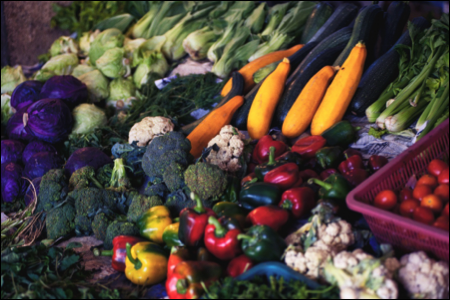
It can be difficult to know what foods are truly good for your health and vision. There is a lot of advice out there, and not all of it is well-founded. For example, carrots are commonly thought to help improve vision. However, research has shown that carrots, while good for your overall health, do not play as significant a role in vision as once thought. At the same time, people often overlook other foods that contain nutrients essential to maintaining healthy vision.
The American Optometric Association recommends adding the following nutrients to your daily diet either through foods or through supplements:
Lutein & Zeaxanthin
Leafy green vegetables, pumpkins, summer squash, and eggs all contain lutein and zeaxanthin. Numerous studies have shown that lutein and zeaxanthin can reduce the risk of chronic eye diseases, including cataracts and age-related macular degeneration.
Vitamin C
Vitamin C is thought to lower the risk of developing cataracts. Additionally, when consumed in combination with other essential nutrients, it can slow the progression of age-related macular degeneration and visual acuity loss. Vitamin C is found in a variety of fruits and vegetables, including citrus fruits, berries, tomatoes, peppers, cabbage, broccoli, brussels sprouts, cauliflower, and cantaloupe.
Vitamin E
Vitamin E is an antioxidant that can protect cells in the eyes from unstable molecules called free radicals, which break down healthy tissue. Vitamin E can be found in nuts, fortified cereals, sweet potatoes, and avocados.
Essential Fatty Acids
Fats boost the immune system, fuel cells, and maintain the integrity of the nervous system. Scientific research shows that omega-3 fatty acids are important for proper visual development and retinal function. Additionally, omega-3 fatty acids have been shown to improve your tear film, which is vital to your vision. Sources of omega-3 fatty acids include cold water fish, such as salmon, tuna, and cod. You can also get omega-3 fatty acids from plant sources, such as walnuts and flaxseed.
Zinc
Zinc is highly concentrated in the eye, particularly in the retina and in the vascular tissue layer lying under the retina called the choroid. As an essential trace mineral, zinc plays a key role in bringing vitamin A from the liver to the retina to produce melanin. Some foods containing zinc include lean meat, seafood, eggs, leafy green vegetables, peanuts, and cheese.
Each of the above nutrients is important to eye health, but like anything, they are best consumed in moderation. Your best bet is to eat a healthy, well-balanced diet and to consult a doctor before making any drastic dietary changes.
Blurred Vision?Looking for information about Cataract surgery? Go to the nearest Milan Eye Center now!
Suggested by the American Optometric Association
Especially rich in lutein, zeaxanthin, folate, and zinc, with modest amounts of vitamin C. Most of the omega-3s are from plant sources, which are not quite as good as the EPA and DHA in fish.
Also, rich in iron, fiber, B vitamins, calcium, potassium, and copper
INGREDIENTS:
Directions
Read: Milan Eye Center Caters State of the Art LASIK Eye Surgery Procedures.
Especially rich in vitamin C, vitamin E, folate, and zinc
Also, rich in plant-based omega-3s, fiber, calcium, iron, magnesium, potassium, and selenium
INGREDIENTS:
Directions
Especially rich in lutein/zeaxanthin, vitamin C, vitamin E, folate, and omega-3s
Also, rich in fiber, iron, magnesium, and potassium
INGREDIENTS:
Directions
Links:
Make an appointment today at one of our eight convenient Atlanta-area locations.
Schedule an Appointment Online
Or call 678-381-2020